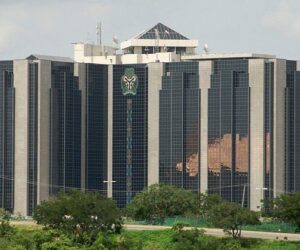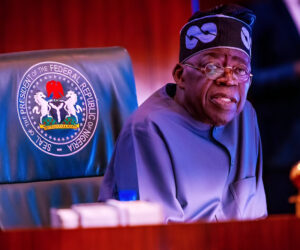Tega Oghenedoro, a Nigerian journalist popularly known as Fejiro Oliver, has been released from a correctional centre in Delta State, Nigeria’s South-south.
One of his lawyers, Inibehe Effiong, confirmed this in a post on X on Tuesday, 18 November.
“After spending two months (61 days, inclusive of yesterday) in police and prison custody in Delta State, I can confirm that Nigerian investigative journalist and publisher of Secret Reporters, Fejiro Oliver, has regained freedom,” Mr Effiong stated.
The lawyer stated that the two cybercrime charges filed by the Inspector-General of Police at the Federal High Court in Asaba, as well as the two separate defamation charges filed by the Attorney-General of Delta State at the Magistrate’s Court in Asaba, were still pending.
Mr Oliver was accused of cyberstalking Governor Sheriff Oborevwori of Delta State and a senator from the state.
The journalist, the publisher of Secret Reporters, an online newspaper based in Abuja, was detained for 61 days despite being granted bail twice.
He initially spent three weeks in police custody in Asaba, Delta State, without trial following his arrest in Abuja on 18 September.
Mr Oliver was later remanded in Ogwashi-Uku Correctional Centre after a hearing at the Federal High Court in Asaba on 9 October.
PREMIUM TIMES gathered that the Federal High Court in Delta granted Mr Oliver bail on 16 October, but the state government allegedly ignored the court’s bail and pursued additional charges through a magistrate’s court.
Two different magistrates in Asaba, it was gathered, granted Mr Oliver bail on 28 October in the two fresh defamation charges marked as Charge No. CMA/529C/2025 and Charge No. CMA/530C/2025.
The Delta State Government, acting through its Attorney General, had filed two new charges against Mr Oliver.
Details of the charges
Mr Oliver, in the first charge, was accused of defaming Delta South Senator Joel Onowakpo by referring to him as a “Blockhead Senator” and “politically useless.”
In the second charge, the journalist was accused of defaming Stella Okotete, an executive director at the Nigerian Export-Import Bank.
Ms Okotete’s nomination as a minister by President Tinubu was rejected by the Senate in 2023.
The police, in the first charge dated 3 October, claimed Mr Oliver, “between July and August 2025,” via a Facebook post, cyber-stalked Governor Oborevwori.
He was further accused of writing that “the governor is a sleeping governor who rigged the election,” which the police claimed was “aimed at damaging his reputation and thereby constituted an offence punishable under Section 24(2)(c)(ii) of the Cybercrime (Prohibition, Prevention, etc.) Act 2015, as amended.
In a second charge sheet also dated 3 October, Mr Oliver was accused of making similar publications on his Facebook page in which he allegedly cyber-stalked the Delta Central Senator, Ede Dafinone.
The journalist was further accused of frequently calling the senator names such as “grossly incompetent senator”, “sleeping senator” and “betraying ingrate”.
The police argued in the charge that by also calling for the recall of Mr Dafinone, the journalist intended to destroy the senator’s reputation and thereby committed an offence punishable under section 24 (2) (c) (ii) of the Cybercrime (Prohibition Prevention etc) Act, 2015, as amended.
Cybercrime as a tool
Mr Oliver’s prosecution highlights growing concerns over how Nigerian officials and elite use police to prosecute critics and journalists.
Defamation is recognised as both a civil and a criminal offence in Nigerian law. Still, many prefer to approach it as a crime, with the police relying on the Cybercrime Act to prosecute suspected offenders.
Nigerians, including legal experts, believe the Cybercrimes (Prohibition, Prevention) Act is one of the Nigerian laws often used to harass and prosecute journalists and suppress free speech in the country.
First enacted in 2015, the Act was later amended in 2024 following criticism for suppressing free speech and dissent, primarily through its vague sections, such as Section 24, which had been used against journalists and activists for online statements deemed “false” or “insulting.”
At least 29 journalists had faced prosecution under the Act before its amendment, according to a report by the Committee to Protect Journalists (CPJ).









